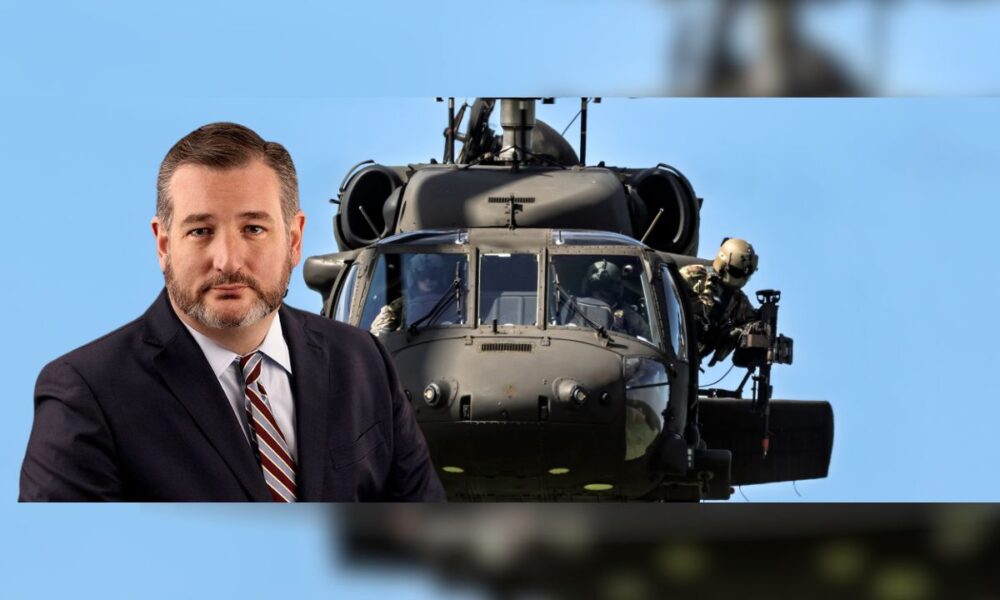Sen. Ted Cruz (R-Texas) is flying high with a new bill that hopes to update the technology used in the American military’s helicopter fleet.
With the long title of The Helicopter Operational Versatility and Enhanced Readiness Act, more quickly referred to as the HOVER Act, the legislation promises to turn the Army’s tried-and-true Black Hawks into modern marvels that can fly with or without a human at the controls.
Cruz said in a recent press release that the move is about “peace through strength,” giving our troops the very best in cutting-edge technology.
“The HOVER Act allows the U.S. Army to modernize its fleet with such technology, boosting military readiness and American national security. I urge my colleagues to swiftly pass this bill to ensure our military remains the strongest and most effective in the world,” Cruz added.
The HOVER Act authorizes the use of government funds to convert at least three Army Black Hawk helicopters into Optionally Piloted Vehicles (OPVs), a fancy term for a helicopter that can fly itself or take instructions from a pilot in a format similar to Bluetooth.
The OPV tech, already proven in aviation practices outside the military, aims to lighten the load on human pilots, reduce human error, and increase survivability rates during dangerous military missions.
Rep. Jake Ellzey (R-Texas-6), a former helicopter pilot, is also sponsoring “companion” legislation in the House.
“As a former helicopter pilot, I understand firsthand the demands and risks associated with complex missions in challenging environments. The HOVER Act is a step forward in aviation safety and mission effectiveness. By integrating Optionally Piloted Vehicle (OPV) technology into Black Hawks, we will not only reduce pilot workload but also enhance situational awareness and increase survivability in high-risk conditions,” Ellzey said.
The bill also directs the Secretary of the Army to run a two-year test drive – an operational experimentation program to evaluate how these OPVs perform in the real world. The Secretary will also have to report back to Congress within a year with progress, findings, and recommendations for OPV usage in the future.
Some could argue the bill is a no-brainer.
Modern combat zones are complex, fast-paced, and dangerous. Cutting-edge tech like OPVs could help pilots focus on their missions and, hopefully, reduce crash rates.
Cruz and Ellzey aren’t waiting around. They’re betting that robotic copilot systems are the next big thing in keeping America’s pilots safe in battle.
The HOVER Act is about more than just tech updates for a few choppers; it’s about ensuring the U.S. Army’s helicopters are ready to face tomorrow’s modern threats.
As Ellzey put it, “This legislation is about giving our pilots the tools they need to be successful. It gives them the ability to execute their missions safely and effectively and come home to their families.”


